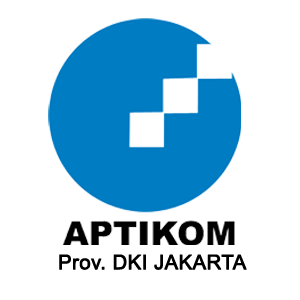Journal of Information Systems and Science Technology (Jurnal Sistem Informasi dan Sains Teknologi) is organized and managed by Information System Department in Trilogi University. This journal is an open access journal that is provided for researchers, lecturers and students who will publish research results in the field of information systems and science technology.
Journal of Information Systems and Science Technology (Jurnal Sistem Informasi dan Sains Teknologi) is a scientific article journal that is the result of ideas, great and original thoughts about the latest research and technological developments covering the fields of information systems, information technology, software engineering, computer engineering and computer science which is summarized in one publisher. Journal of Information Systems and Science Technology (Jurnal Sistem Informasi dan Sains Teknologi) became one of the means for researchers to publish their great works published two issue in one year, namely in February and August with e-ISSN: 2684-8260.
Focus and Scope :
SOFTWARE ENGINEERING
Apply processes, methods, and tools to the problem of building and maintaining computer software with a defined level of quality, at a predictable cost, on a predictable schedule. Topics include:
- Emphasis on the ability to analyze, design, verify, validate, implement, apply and maintain software systems
HUMAN-COMPUTER INTERACTION
Design software systems with consideration for the user. Topics include:
- Graphical user interfaces
- Psychology of human-computer interaction
- Cognitive psychology
- Computer graphics
ARTIFICIAL INTELLIGENCE
Examines methods and techniques for designing machinery that can reason and think the same way humans do. Topics include:
- Problem Solving
- Game Playing
- Natural Language Understanding
- Agents
- Expert Systems
- Logic Programming
- Neural Networks
- Robotics
- Automated Theorem Proving
- Machine Learning
COMPUTING SYSTEMS
How software can be designed to use computational resource efficiently and securely. Topics include:
- Concurrent and multi-threaded programming
- Operating systems
- Databases
- Networks
DATA STRUCTURES & ALGORITHMS
Shows how to Design algorithmic solutions for typical problems as in all areas of application the proper choice of data structures and algorithms is key to creating correct and efficient software. Topics include:
- Analyze the use of computational resources
- Find the limits of computation
- Great foundation for graduate study
COMPUTER & NETWORK SECURITY
Focuses on issues affecting the security of computer systems and networks. Topics include:
- Principles of layered defense
- Attack detection and response
- Comparing the cost versus the benefits of security measures
- Underlying cryptographic foundations
- Developing secure systems
GAME DEVELOPMENT & DESIGN
Our game development courses cover the fundamentals of game design and development. Game development degree topics include:
- 2D and 3D games
- Range of areas from games for education and experimental games to large-scale commercial game development
COMPUTER GRAPHICS & VISION
Interrelated disciplines that make computers see and recreate the complex world that surrounds us. Topics include:
- Capturing, modeling, and rendering visual information
- Fundamental theory and application
- Robust algorithms based on a rigorous understanding of the physical world
COMPUTER ARCHITECTURE
Studies modern computer architecture including parallel architectures, high performance computing techniques, and embedded systems. Topics include:
- Design and efficient use of pipelining, superscalar execution, multiple cores, embedded systems, the memory system, fast caches and the issues programmers can run into when these are misused
- Microcontrollers
- System-level software
- Self-contained systems
NUMERIC & SYMBOLIC COMPUTATION
Use computers as tools to solve many of today’s complex scientific, engineering and financial problems. Topics include:
- Model and simulate the world in which we live
- Create new virtual worlds
- Explore many interesting phenomena
 Jurnal Sistem Informasi dan Sains Teknologi
Jurnal Sistem Informasi dan Sains Teknologi 





















